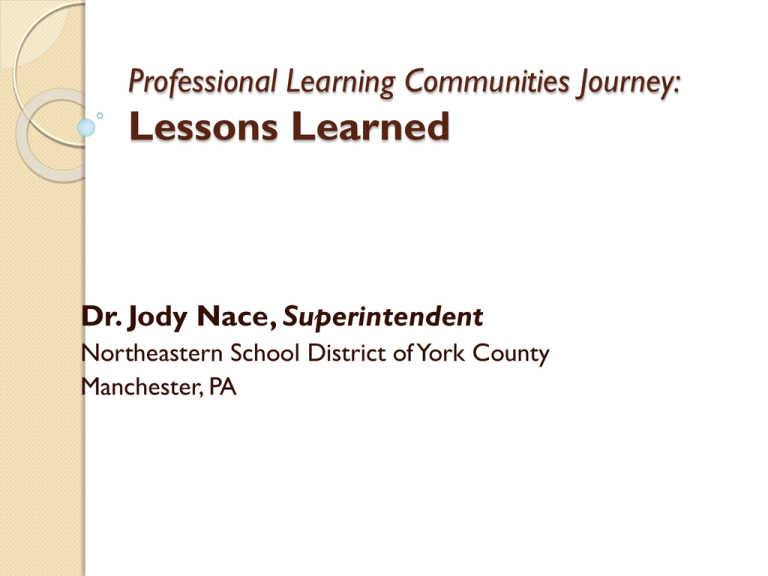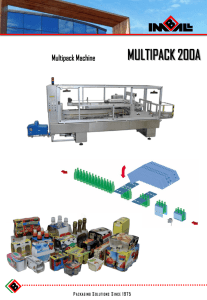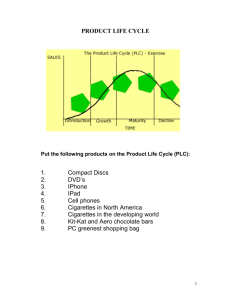Professional Learning Communities: Lessons Learned
advertisement

Professional Learning Communities Journey: Lessons Learned Dr. Jody Nace, Superintendent Northeastern School District of York County Manchester, PA Professional Learning Community A community with the capacity to promote and sustain the learning of all professionals in the school community with the collective purpose of enhancing student learning. Bolam, et al, 2005, p. 145 5 Essential Characteristics of PLCs 1. 2. 3. 4. 5. Shared values and norms A clear and consistent focus on student learning Reflective dialogue that leads to “extensive and continuing conversations among teachers about curriculum, instruction, and student development Deprivatizing practice to make teaching public As cited in Vescio, et al, 2007 Collaboration Northeastern School District York County, PA 52 square miles 3,812 students, K-12 1 High School serving grades 9-12 1 Middle School serving grades 7-8 2 Intermediate Schools serving grades 4-6 4 Elementary School serving grades K-3 286 Professional Staff/ 185 Support Staff/ 19 Administrators Free and Reduced population= 42% $54 million budget Vision 100% of our students will graduate and be fully prepared for a post-secondary education. “Deprivatizing practice to make teaching public” Dr. Randi Payne – Principal, Mount Wolf Elementary School ◦ Transparency of Data ◦ 1st Grade CA Chart ◦ 2nd Grade Math Facts What do we expect our students to learn? Lesson Learned: Lack of a solid core curriculum… Research Base “…a guaranteed and viable curriculum is the school-level factor with the most impact on student achievement.” --Marzano, 2003 Steps to a Guaranteed & Viable Curriculum Dr. Shawn Minnich – Assistant Superintendent of C&I ◦ Curriculum Maps ◦ http://www.nesd.k12.pa.us/site/default.aspx?Pa geID=1 ◦ Curriculum Council ◦ Work in grade level/department teams What do we expect our students to learn? Literacy PLC/Acceleration Mr. Michael Alessandroni – Middle School Principal ◦ Building a guiding coalition/Change Process: L.L.T (Literacy Leadership TEAM) ◦ Acceleration/Previewing: Essential Questions: 1. 2. 3. 4. Do you believe that a student’s attitude towards learning is inextricably linked to their achievement and how they VIEW “school?” If remediation is always occurring, does the child ever “catch up” or remain behind as others move further ahead? Is vocabulary important to a child’s success in school? Do students do better if they have background information related to a teacher’s lesson? What is Acceleration? Acceleration is like a movie trailer… How will we know if students have learned it? Lesson Learned: Not all teachers were administering common assessments, analyzing the data and using the results to inform instruction… How will we know if students have learned it? Common Assessments – District -wide Mr. Shaffer – Principal, Conewago Elementary Mrs. Kim Cable – Kindergarten Teacher ◦ Artifact –Common Assessment Analysis ◦ Data Analysis Rubric – Mr. Shaffer How will we respond to students who have not learned? Lesson Learned: Our response was not systematic, timely, or directive… Research Base “When a school begins to function as a professional learning community…teachers become aware of the incongruity between their commitment to ensure learning for all students and their lack of coordinated strategy to respond when some students do not learn.” --DuFour, 2005 Responding to students who struggle Student Focused Team meetings Use of Data Walls Insert Video clip ◦ Student Focus Meeting video clip How will we enrich for those who already know it? Lesson Learned: Teachers didn’t know where to begin, we were not finding out who already knows it, and we had a cultural belief that we did not have a high number of kids with high ability… Research Base “To maximize the potential in each learner, educators need to meet each child at his or her starting point and ensure substantial growth.” --Tomlinson, 1999 Cultural Shift – “We have smart kids!” Dr. Sidle – Assistant Superintendent ◦ Video clip—cultural shift “We believe we have smart kids in NESD” Ben Weaver Cultural Shift – “We have smart kids!” Dr. Sidle – Assistant Superintendent ◦ Flexibility in options for high achievers Lessons Along the Way… Just having the structures in place to allow for meeting time is not enough ◦ Response: Provide protocols ◦ Dr. Todd Monos – Principal, Orendorf Elementary ◦ Artifacts: Orendorf PLC menu PLC meeting template and benchmarks for what should happen at a PLC Meeting PLC Menu PLC Benchmarks/Meeting Template PLC Benchmarks/Meeting Template Lessons Along the Way… We were good at making excuses We had to confront the current reality. ◦ Response: The Leadership Team communicated high expectations Fidelity of PLC’s Have we compromised, sold out, and lowered our expectations of the major tenets of a PLC? ◦ Even though we agree that teaching in isolation is not effective, and we need to be collaborative, do we still allow teams to be only collegial and congenial instead of collaborative? ◦ Do we meet regularly to identify kids for interventions that are timely, directive, and systematic? ◦ Do we settle for team goals that are less than SMART? (Specific, Measurable, Attainable, Results Oriented, Time-Bound) Or worse yet, do we settle for no working team goals at all? ◦ Do we hide behind excuses? Examples: (It is impossible to begin because we need more training.) Training can be a way of avoiding the “doing.” (We need to have teacher buy-in before we begin.) You will never begin if you are waiting for complete buy-in. (Our schedule is too complicated to change in order to allow for common collaborative time.) There are thousands of examples of schools that have figured it out at all levels. ◦ Do we systematically provide data to teachers that is easily accessible, purposely arranged, and publicly discussed? ◦ Do we accept excuses for missing PLC meetings and not making it a priority? ◦ Do we insist on common, frequent formative assessments and pacing guides so that teachers can speak the same language at PLC meetings? PLC Leadership “The most common cause of the demise of PLC initiatives is not the result of a single cataclysmic event, but rather repeated compromises regarding the fundamental premises of PLCs. There is no one fatal blow: PLCs die from a thousand small wounds.” Dufour, Robert, DuFour Rebecca, Eaker, Robert, Many, Tom. Learning by Doing, 2006. Administrative Commitment ◦ Artifact Administrative PLC commitments (nonnegotiables 11-12) Lessons Along of Way… Lack of accountability The importance of conversation and support ◦ Mr. Devin Moyer – Principal, Spring Forge Intermediate School Video: individual principal/teacher data meetings Lessons Along the Way… Lack of accountability The importance of monitoring and support ◦ Mrs. Missy Bream – High School Assistant Principal Building HS Schedule to support PLC Teacher Schedule Google Docs Monitoring System English 12 https://docs.google.com/a/northeasternsd.org/spreadsheet/cc c?key=0AnFacD6y2Wv2dDdIcGJodmlfM0RIS2d6UnhiS0JoOF E#gid=10 AP Human Geography https://docs.google.com/a/northeasternsd.org/spreadsheet/cc c?key=0AnFacD6y2Wv2dFJaY3Nmek9IcndYWlE3RHI2V0xQ MVE#gid=10 http://www.nesd.k12.pa.us/site/default.aspx?PageID=1 Lessons Along the Way… Questions? References Bolam, R., McMahon, A., Stoll, L., Thomas, S., & Wallace, M. (2005). Creating and sustaining professional learning communities. Research Report Number 637. London, EnglandL General Teaching Council for England, Department for Education and Skills. DuFour, R. (2005). On common ground: The power of professional learning communities. Bloomington, IN: National Education Service. Marzano, R.J. (2003). What works in schools: Translating research into action. Alexandria,VA: ASCD. Schmoker, M. (1999). Results:The key to continuous school improvement (2nd ed.). Alexandria,VA: ASCD. Schmoker, M. (2011). Focus: Elevating the essentials to radically improve student learning. Alexandria,VA: ASCD. References Tomlinson, C.A. (1999). The differentiated classroom: Responding to the needs of all learners. Alexandria,VA: ASCD. Vescio,V., Ross, D., & Adams, A. (2007). A review of research on the impact of professional learning communities on teaching practice and student learning. Teaching and Teacher Education, 24, 80-91. Wang, J.L.N. (2010). Searching for good practice in teaching: a comparison of two subject-based professional learning communities in a secondary school in Shanghai. Compare, 40(5), 623-639.





